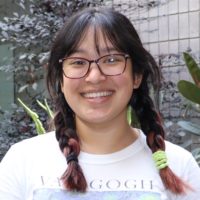
“Optimizing a deep-learning based program that quantifies arbuscular mycorrhizal colonization”
Project summary:
The arbuscular mycorrhizal (AM) symbiosis is one of the most ubiquitous and important plant-fungal symbiotic relationships. During this interaction, plants are colonized by AM fungi and exchange carbon for otherwise inaccessible essential nutrients, such as phosphorus and nitrogen. Therefore, it is widely studied for its potential to increase nutrient use efficiency in agricultural settings. Fungal colonization is an important parameter for characterizing genes that underlie the mechanisms of the symbiosis, but currently, the most common method for quantifying fungal colonization involves manually counting colonized regions of ink-stained or antibody-labeled roots. This process is not only time-consuming, but also subjective and largely prone to human error. Recently, a deep-learning based program (AMFinder) was developed to automate the quantification process. The program utilizes convolutional neural networks to categorize roots segments in an image as either colonized or noncolonized, providing a much more efficient and consistent method for measuring colonization. The goal of my project was to optimize this program for use in the Harrison lab. To accomplish this goal, the root staining procedure and the imaging method were optimized. The images taken using the optimized protocol were used to retrain the program for a better accuracy. After training with images of the ink-stained roots taken on a flat-bed scanner, the accuracy of the program increased by 5% to 74% accuracy. The small increase is likely due to the inadequate size of the dataset that was used, so in the future, retraining with larger datasets is necessary to reach a higher accuracy.
My Experience:
During my internship with BTI, I had an opportunity to meet and connect with so many fantastic people and was exposed to new topics in plant research. I had never worked with any bioinformatics software previously and had no background in computer science, so this summer was a huge learning experience for me. From working on a machine-learning program for my project to the bioinformatics course, I learned so much about bioinformatics and developed a new set of highly applicable skills. This summer also provided me with an opportunity to learn about graduate school and the insight I gained into graduate programs both at Cornell and in general really helped me clarify my plans for after I complete my undergraduate studies.
